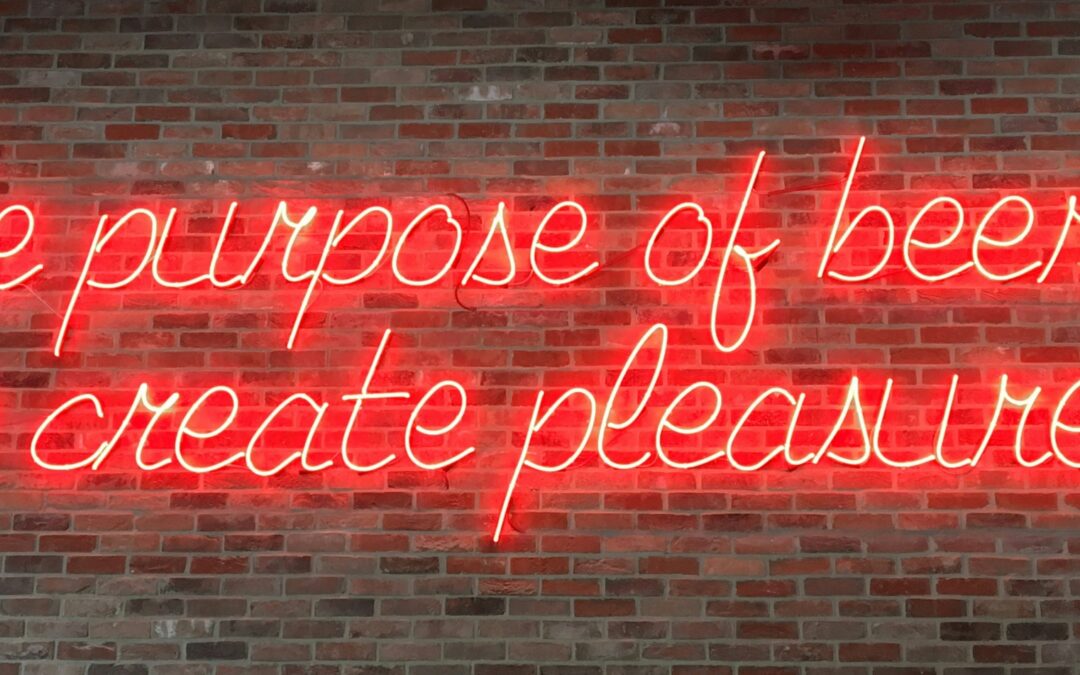Purpose. Goal. Mission. You hear these words a lot this time of year. Not because it’s the start of the annual business planning cycle but because it’s graduation season.
Across the country, commencement speakers and wise family members espouse the importance of having a purpose to guide and sustain graduates as they set out on their next adventures.
All the talk of purpose can feel overwhelming, especially as you listen to graduates’ wide-eyed optimism about how they will change the world while stewing in an existential crisis that makes you wonder if you even have a purpose.
You do.
And part of that purpose is finding and creating purpose.
What is “Purpose?’
Purpose hasn’t reached buzzword status, but it’s close, so let’s start with a definition, or three, courtesy of The Britannica Dictionary:
- the reason why something is done or used: the aim or intention of something – The purpose of innovation is to create value
- the feeling of being determined to do or achieve something – The team worked with purpose
- the aim or goal of a person: what a person is trying to do, become, etc. – He knew from a young age that her sole purpose in life was to be an orthodontist
Three different definitions of purpose. Three questions that it’s part of your purpose to ask.
“What’s THE purpose?”
Innovation is all about creating value. Sometimes, to create value, you need to do new things. Sometimes, you need to stop doing things. It’s hard to tell the difference if you don’t ask.
That’s why innovative leaders are curious. You aren’t afraid to ask, “What’s the purpose of this product/process/meeting/decision/(fill in the blank).” You want to know “why something is done or used,” and they know that the best way to figure that out is by asking.
You ask this question at least once a day. When you ask it, you’re genuinely curious about the answer. After all, we’ve all experienced people and cultures that weaponize questions – “Johnny, is that where the scissors go?” or “Why did you think that was a good idea?” – and you reassure people that you’re asking a genuine question, even if they should know that by your tone.
“What’s OUR purpose?”
Innovation is hard. You live in ambiguity and uncertainty. You fail (learn) more often than you succeed. You are told “No” and “Stop” more than “Yes,” “Keep going,” and “Thank You.”
Innovators are courageous. You do the hard work of innovation because you are “determined to do or achieve something.”
You also know that sustaining courage and purpose requires a team.
You aren’t fooled by the myth of the lone genius. After all, Thomas Edison worked with as many as 200 people in his West Orange lab. Heck, even Steve Jobs needed Sir Jony Ive (and a few hundred other people) to bring his vision of “1,000 songs in your pocket” to life.
“What’s MY purpose?”
Innovation takes a long time. Change happens gradually, then suddenly. We chose to preserve what we have, rather than take a risk to get more.
Innovators are committed. You are patient for change, steadfast in the face of resistance, and optimistic when others are afraid because of your “aim or goal…what [you are] trying to do, become, etc.”
Even if you can’t articulate it in a grand statement or simple, pithy soundbite, you have a purpose. As Viktor Frankl wrote, “Those who have a ‘why’ to live, can bear with almost any ‘how’.”
Three Purposes. Three questions
Even if you lack the wide-eyed optimism of a new graduate and feel like you spend most days just muddling through life, because you are here, you have a purpose. So tell me:
- When was the last time you were curious and asked, “What’s the purpose of (artifact of the status quo)?”
- When was the last time you were courageous and used your feeling of determination to inspire others to join your purpose, overcome obstacles, and get something done?
- When was the last time you had to dig deep, rediscover your purpose, and reinforce your commitment so that you could bear and overcome the “how?”

This reminds me of the questions we ask people starting new ventures to answer:
What does your product/service do? What is the problem your product/service solves? What pain points are eliminated? (Think: Clayton Christensen’s “Job to be done.”).
Pretty simple questions!
You know I love Jobs to be Done, Andrew! Yes, those questions are so important to ask at the beginning of every entrepreneurial journey, and it’s always surprising to me how many entrepreneurs struggle to answer them. They’re also important to ask regularly once the business is in a steady state. So often, established companies stop asking, “What’s the purpose of X?” and just keep doing things they’ve always done in the ways they’ve always done them. This limits their ability to do things better or to stop doing things and free up resources to start doing new things. Keep asking the questions, Andrew!